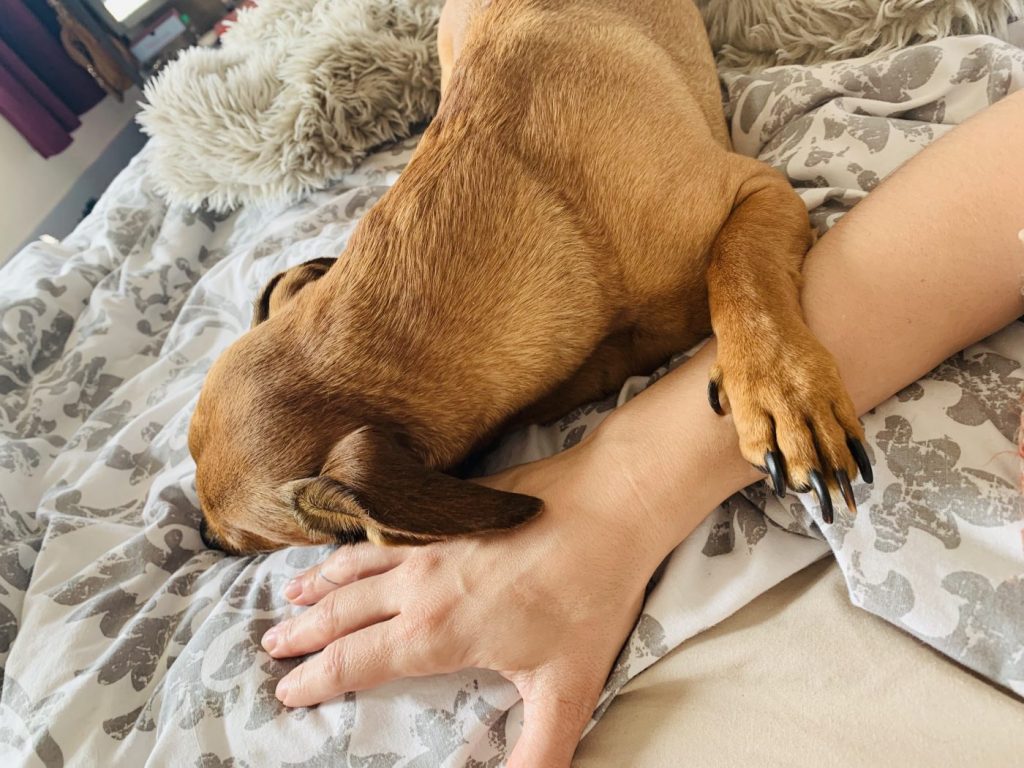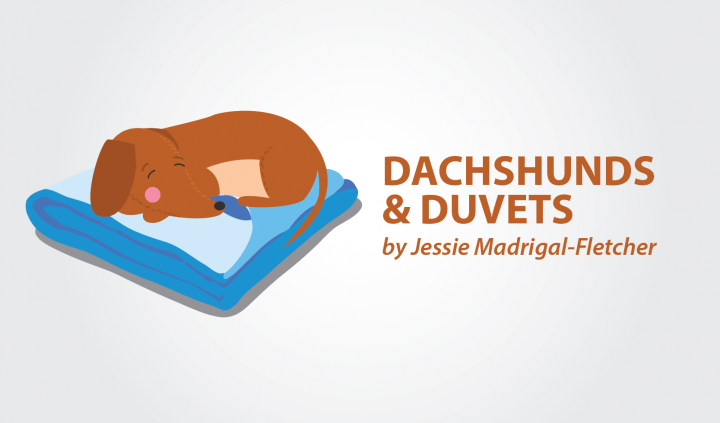I have been fighting off COVID-19 symptoms for a few days. I’m in lockdown in Madrid, so I followed the government’s advice to monitor my health and self-isolate. I’d been doing the latter for a while, apart from walking my dogs and grocery shopping. I also happen to know two wonderful nurses who checked up on me remotely each day, and made sure I was taking proper care of myself.
But let me tell you, it has been scary. Not scary as in “I’m going to hide under the duvet because I heard a strange noise,” but scary as in “What if this escalates, I get so ill I pass out, and no one knows, and, and …”
Just like the flu, my symptoms would worsen at night, right on time for my brain’s “Happy Hour.” This is the magically creative time when my mind overanalyzes everything, conjuring up the worst scenarios. No amount of Harry Potter films helped, nor did seeing Chris Evans in his Captain America uniform. It was me, completely alone, with a brain set on “you’re dying,” Lionel Ritchie-style, all-night-long.
And the thing is, I should be a pro at shutting down my brain. I live with endometriosis, a chronic illness that often enjoys a troubling game called “Why Does It Hurt?“ Really, I should know better. Just because I feel awful right now, it doesn’t mean the next step is an ambulance or a scary diagnosis. Sometimes we just pick up something, and we get sick. Sometimes our right ovary hurts, and it means nothing other than our right ovary hurts.
So why does my mind go into scary mode?
Is it because I have the courage of a baby rabbit? Or is it due to growing up and shockingly discovering superheroes aren’t real? Or maybe it comes from, according to my therapist, my experience with loss.
When I was 14, one of my closest friends died from cancer. I had known her only a year, but we became as thick as thieves during that time. She offered comfort from the bullies in our classroom who had it in for me, and we shared a geeky sense of humor over the overtly complicated prayers the nuns made us memorize. One day she got sick, and within six months, we lost her.
I remember visiting her in the hospital, the scariest of places for a young teenager, and being unable to process it all. I remember my mother worrying about my well-being while watching me lie quietly in bed. But my brain digested it all without anyone’s assistance, and it introduced me to The Fear.

Fear became part of my life from early on. Interestingly, my mother used to call me fearless, but I think she was wrong. Fear, I had. Heaps of it.
What I am is courageous.
I’m not one to think fondly of myself or accept compliments from others. Duh, I’m British. Yet, I know that true courage happens when the scariest things lie ahead, and still, we put one foot forward. Like when we are waiting for surgery, dressed in hospital gowns and with only ourselves for company. Then a nurse calls out our name, and we follow them. What lies ahead is far from pleasant, yet we carry on.
Uncertain times require the biggest amount of courage. Fear will go nowhere, it will sit next to our beds, feed our nightmares, and make us wake up every day full of anxiety. Yet while the scariest of thoughts will stick to us like glue, it is up to us to keep on keeping on, even if that means hiding under our blankets sometimes.
***
Note: Endometriosis News is strictly a news and information website about the disease. It does not provide medical advice, diagnosis, or treatment. This content is not intended to be a substitute for professional medical advice, diagnosis, or treatment. Always seek the advice of your physician or other qualified health provider with any questions you may have regarding a medical condition. Never disregard professional medical advice or delay in seeking it because of something you have read on this website. The opinions expressed in this column are not those of Endometriosis News or its parent company, BioNews Services, and are intended to spark discussion about issues pertaining to endometriosis.

